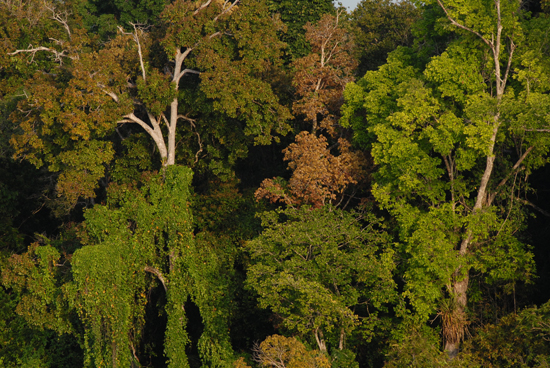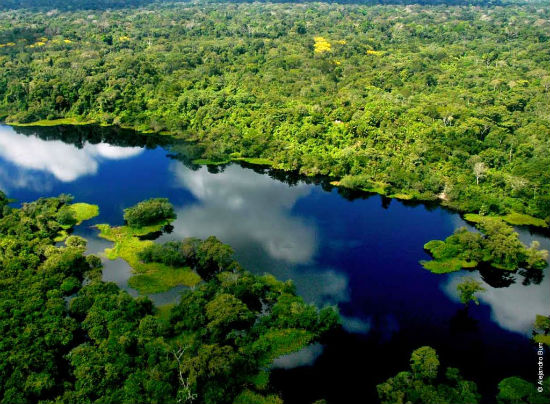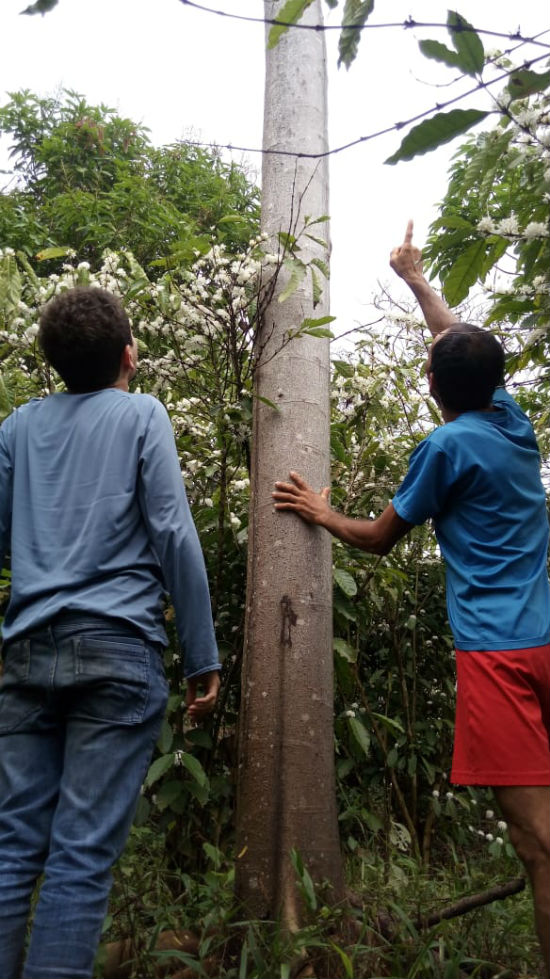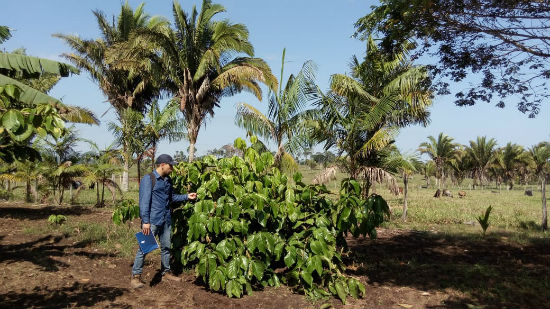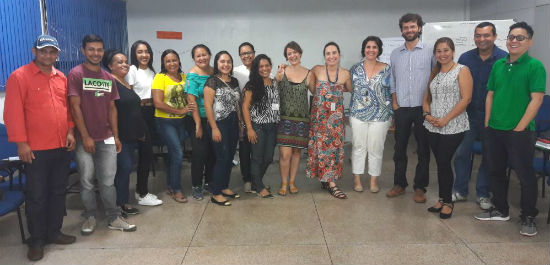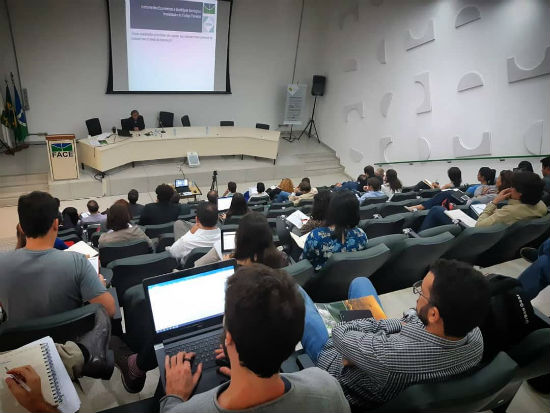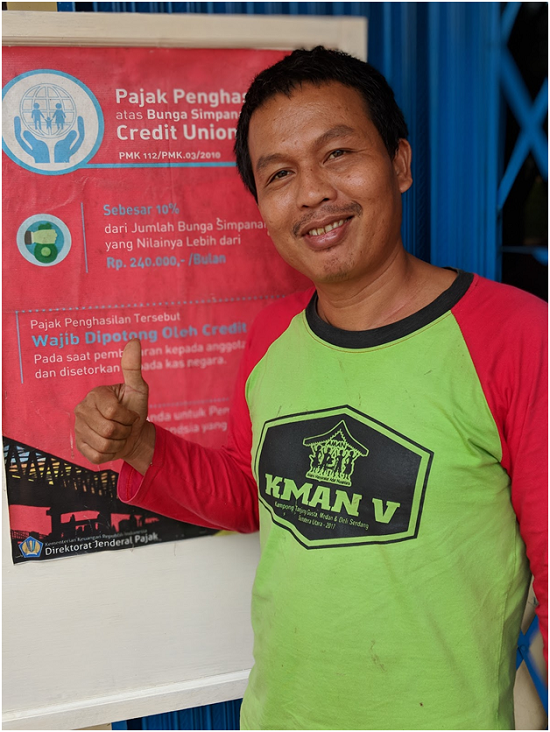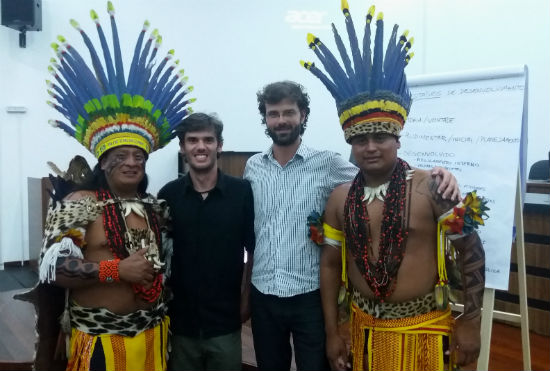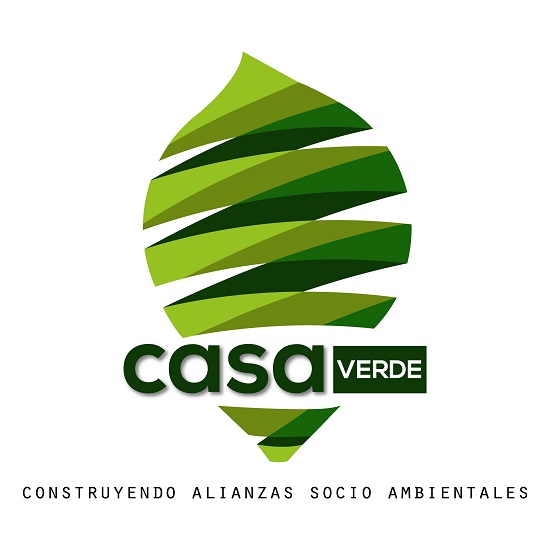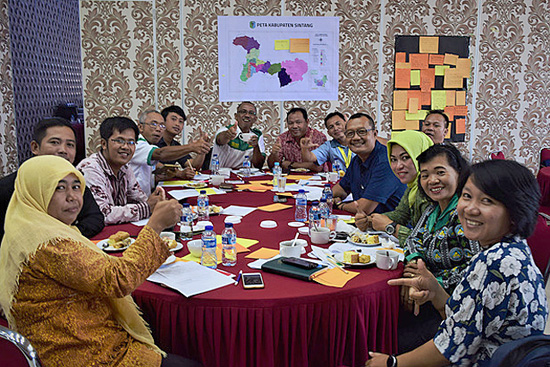News
In partnership with the Forest Code Observatory (OCF) and Brazilian State level Environment Agencies, CSF-Brazil has concluded a study on the implementation of Environmental Reserve Quotas (CRAs) in the state of Maranhão (MA), and opportunities in Bahia (BA) and Tocantins (TO). We aim to support MA in the CRAs market implementation and to promote dialogue and experience sharing among MA, BA and TO. The ultimate goal of the study is to promote ecosystem and forest conservation in a more economically efficient and environmentally sound way in the Amazon, Cerrado and Caatinga Brazilian biomes.
Photo credit: Alejandro Burr.
Understanding the forest restoration models used.
Understanding the forest restoration models used.
Participants of the Fazendinha APA’s ESs value chains workshop.
On August 7th, 2018, CSF-Brazil, the Forest Code Observatory (OCF) and the Brazilian Biodiversity Fund (Funbio) facilitated a "Dialogue on economic instruments and ecological identity for the Forest Code implementation." Forty-five professionals, representing government, research institutions and rural producers, attended the event in Brasília. The dialogue provided a forum to discuss possible ways of implementing the provisions of the Forest Code (Law 12.651 / 2012), including economic incentives, Legal Reserves (LRs) compensation, and the ecological identity requirement for compensation - according to the ruling of the Supreme Court Federal Court (STF) in February 2018 - with a special focus on the Environmental Reserve Quotas (CRAs) market.
CSF-Brazil Director, Pedro Gasparinetti, CSF-Brazil consultant, Rodrigo Ozorio, and leaders from the Wazare indigenous village.
For the past year, CSF-Bolivia has been working on an innovative platform called CASA Verde which aims to engage different sectors of Bolivian society including conservation NGOs, private companies, and the general public, who are interested in contributing to environmental conservation. The main objective of CASA Verde is to improve conservation of ecosystems that sustain life and productive activities in Bolivia by promoting greater participation and awareness in society. CASA Verde will also contribute to the implementation of the commitments assumed by Bolivia in the National Development Plan, as well as the achievement of the Sustainable Development Goals.
Stakeholders from various background got together during the dialogue. Photo credit: Sopian Hidayat.

